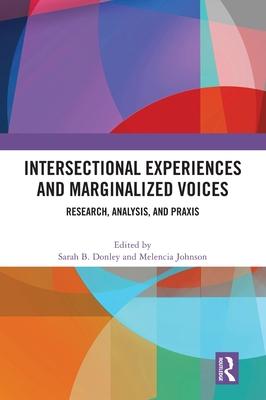Intersectional scholarship represents a significant cornerstone to the study of the social inequality. This book makes visible the contribution of social scientists to intersectional research, analysis, and praxis in a diverse sampling of scholarship from across the sociological spectrum highlighting various quantitative and qualitative methodologies.
The contributions to this volume show how multiple dimensions of identity intersect with dimensions of power and privilege to shape the opportunities and obstacles that people encounter in their day to day lives. Utilizing a variety of quantitative and qualitative methods, scholars included in this book center:
- Methods of intersectional research
- Marginalized faculty's experiences in the neoliberal university
- Victim characteristics of transgender Americans
- The effect of immigration and gender status on PhD engineers' earnings
- How social capital access is shaped by race and gender status
- Latinas' experiences in sports
- Trans men's pathways to incarceration
Intersectional scholarship holds significant importance in providing a nuanced understanding of oppression and power dynamics as well as functioning as critical praxis for doing social justice work. This insightful volume will be useful for scholarly readers and researchers in the subject areas of sociology, gender and sexualities studies, race and ethnicity, feminist pedagogy, and criminology. The chapters in this book were originally published in the journal Sociological Spectrum.
